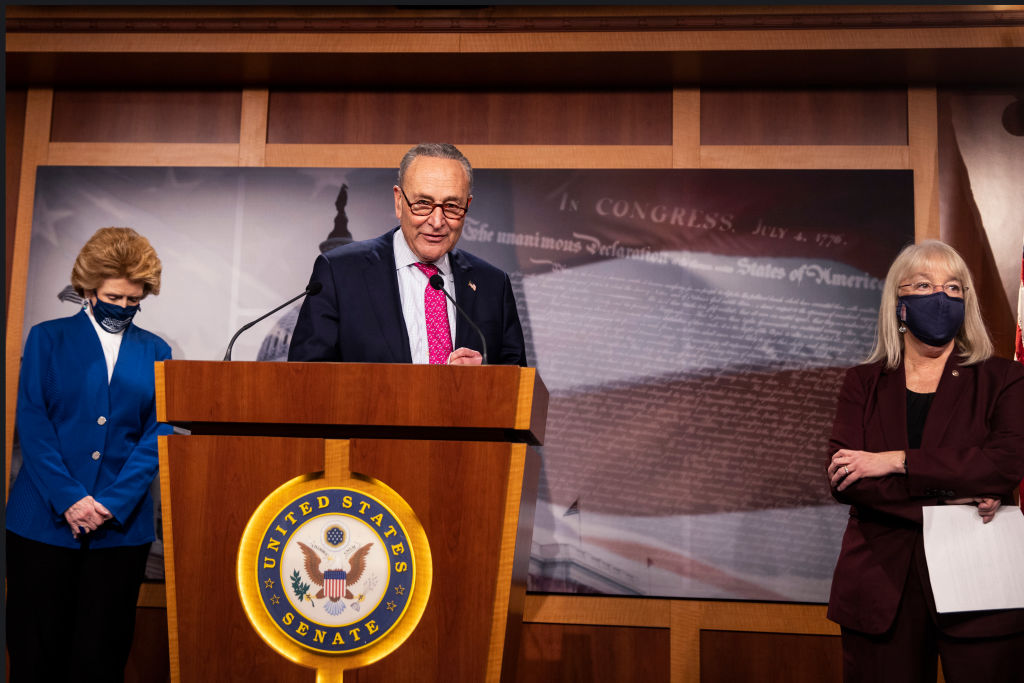Democrats are preparing for a party-line COVID-19 bill, hoping for bipartisan buy-in


A free daily email with the biggest news stories of the day – and the best features from TheWeek.com
You are now subscribed
Your newsletter sign-up was successful
House Democrats will introduce a budget resolution Monday that starts the process for the Senate to use a legislative tool called budget reconciliation to pass President Biden's $1.9 trillion COVID-19 relief package with 51 votes, meaning no Republicans would need to support it if the Democratic caucus stuck together. But Democratic leaders also made sure to underscore Tuesday that they would prefer to pass the COVID-19 package with Republican support, through the regular legislative process.
"The work must move forward, preferably with our Republican colleagues but without them if we must," Senate Majority Leader Chuck Schumer (D-N.Y.) said in a news conference. "Time is of the essence to address this crisis." Biden's package includes $1,400 direct payments, a hike in the child tax credit, an extension of emergency jobless benefits set to expire March 14, billions for vaccine distribution and schools, and a $15 national minimum wage, among other provisions.
Ending the legislative filibuster is off the table for now, and using the reconciliation process comes with limitations. Many Democrats, skeptical that any Republicans would support even a smaller stimulus package, see it as the only viable option. But a handful of moderates from both parties are urging Biden to make a deal. One Senate Democrat could thwart the legislation.
The Week
Escape your echo chamber. Get the facts behind the news, plus analysis from multiple perspectives.

Sign up for The Week's Free Newsletters
From our morning news briefing to a weekly Good News Newsletter, get the best of The Week delivered directly to your inbox.
From our morning news briefing to a weekly Good News Newsletter, get the best of The Week delivered directly to your inbox.
"I'll guarantee you I can sit down with my Republican friends and find a pathway forward," said Sen. Joe Manchin (D-W.Va.), who organized a meeting between bipartisan Senate moderates and Biden's team on Sunday. "Let me try first." Senate Budget Committee Chairman Bernie Sanders (I-Vt.) disagreed. "People can talk to whoever they want to talk to, but this country faces enormous crises," he said. "Elections have consequences. We're in the majority, and we've got to act."
Starting the ball rolling for budget reconciliation leaves plenty of time for bipartisan talks. "If we're going to use reconciliation, we have to go forward with it pretty soon, but that doesn't prevent a negotiated package as well," said House Budget Chairman John Yarmuth (D-Ky.). "At worst, it's Plan A and at best it's Plan B."
A free daily email with the biggest news stories of the day – and the best features from TheWeek.com
Peter has worked as a news and culture writer and editor at The Week since the site's launch in 2008. He covers politics, world affairs, religion and cultural currents. His journalism career began as a copy editor at a financial newswire and has included editorial positions at The New York Times Magazine, Facts on File, and Oregon State University.
